
More than ever, the local church needs worship leaders who know God and will lead the church in honour of the One who is reconciling the world to Himself.
Develop your skills, gain fluency in music as you take private music lessons, learn music theory, songwriting and worship leading. Develop a Christian worldview of the arts. Put your learning into practice by participating in vocal and instrumental ensembles where you will acquire both musical and leadership skills. Learn to plan, lead and evaluate worship experiences both on and off campus. Learn the use and meaning behind ritual and symbols involved in worship.
“Uplifting, Christ-centred, and pushes you beyond what you thought you could be.” Emily, Music & Worship Arts Grad
One year in our musicianship program will develop your vocal and instrumental skills, grounding you in scripture and giving you new ways to express yourself and your faith.

You are a leader and you are musically gifted. Our four-year program prepares you for a career in Worship Ministry. Students will find that their excellent classroom instruction will be enhanced by multiple opportunities to lead worship throughout their program.


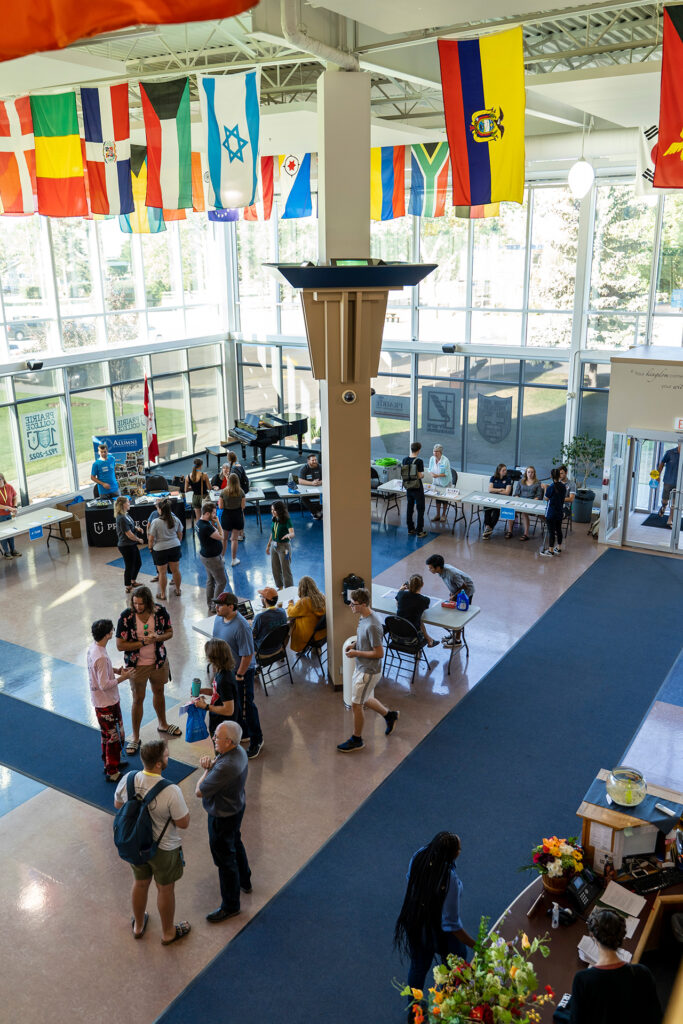
Box 4000
Three Hills, AB T0M 2N0
Canada
Phone: 403.443.5511
TollFree: 1.800.661.2425
admissions@prairie.edu
info@prairie.edu
2024 © Prairie College
All rights reserved

Students will be able to participate in the Music and Worship Arts co-curricular opportunities such as Music Appreciation, the Vinyl Vault, and the SongSmith Society. These opportunities will assist the student’s pursuit of musicianship.
Students will be interacting with and studying with present and like-minded music and worship arts students, as there will be similar requirements of music lessons, music lessons practice, music ensemble playing, etc.
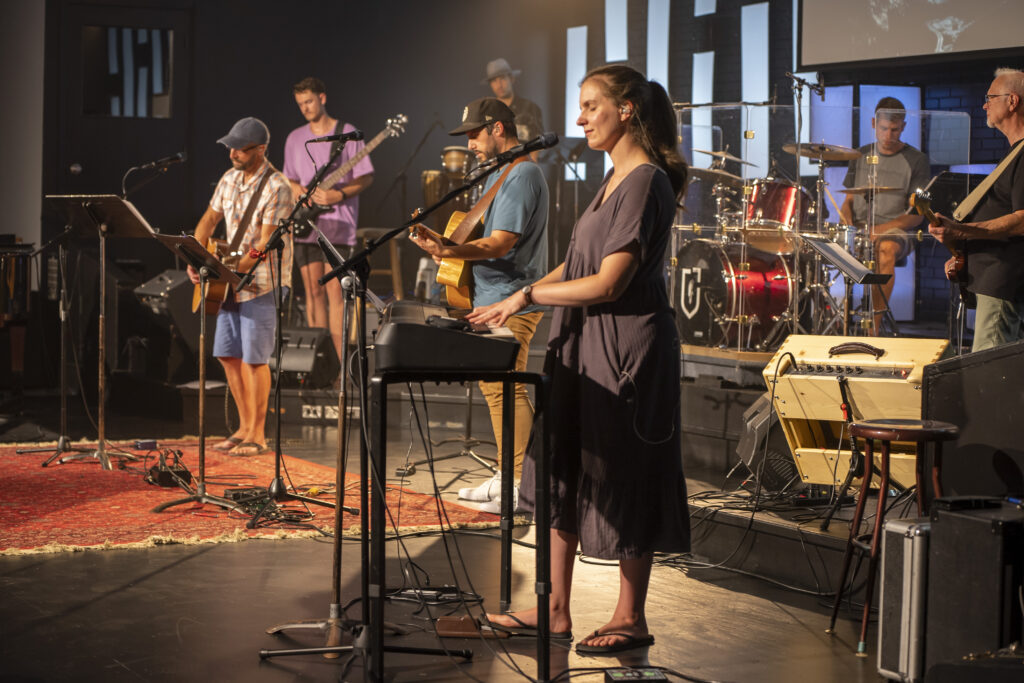
Students will gain a foundation in musicianship with an aim toward fluency. Yearlong study in an instrument, in voice and vocal production, in songwriting, in ensemble playing will be directed to this aim.

Students will find that their excellent classroom instruction will be enhanced by multiple opportunities to lead worship throughout their program.
Along with our remarkable teaching faculty we are thrilled to bring in several guest artists throughout the year to enhance your learning.
With 45 Bible & Theology credits you will build a strong biblical foundation to base your career on.
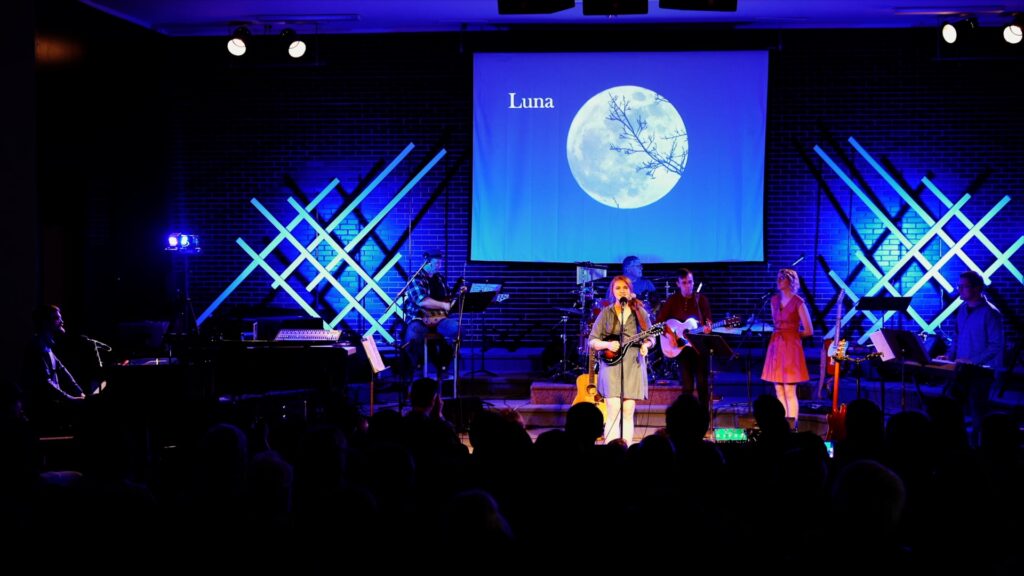
Worship Practicums will stretch the student as they plan, lead, and evaluate worship experience opportunities on campus and off campus.

One-Year Certificate
All courses are three credits unless shown otherwise.
Bible and Theology Core (12 credits)
NT 112 Reading the Gospels and Acts
NT 221 Reading Paul’s Letters
OT 112 Reading the Torah
OT 221 Reading the Historical Books
Arts and Sciences Core (3 credits)
HF 111 Thinking and Writing
Music Courses (15 credits)
MU 155, 158 Music Lessons (Voice; 2 credits)
MU 156, 159 Music Lessons (Piano, Guitar, or Percussion)
MU 167-68 Sight Reading and Ear Training—Parts 1 and 2
MU 193 Community Choir (2 credits)
MU 194 Applied Band/Ensemble (1 credit)
WA 101 Introduction to Worship Leading (1 credit)
WA 120 Introduction to Songwriting (1 credit)
WA 123 The Language of Music 1 (1 credit)
WA 124 The Language of Music 2 (1 credit)
For course descriptions, see our catalogue here.
Four-year Degree (Bachelor)
All courses are three credits unless shown otherwise.
Bible and Theology Major (45 Credits)
BT 409 Word and World
NT 112 Reading the Gospels and Acts
NT 221 Reading Paul’s Letters
NT 351 Reading Hebrews to Revelation
OT 112 Reading the Torah
OT 221 Reading the Historical Books
OT 343 Reading the Psalms and Wisdom Literature
OT 453 Reading the Prophets
ST 100 The Christian Life
TH 100 Introduction to Christian Theology
TH 210 God of the Gospel
TH 313 Creation to New Creation
Bible and Theology electives (9 credits)
Arts and Sciences Core (36 credits)
AS 400 Integrative Seminar
HF 111 Thinking and Writing
HF 231 History of Western Civilization I
HF 232 History of Western Civilization II
MU 255-458 Music Lessons (6 credits)
SC 230 History and Philosophy of Science
SS 170 Christianity in the 21st Century World
SS 210 Introduction to Psychology
SS 261 Leadership Foundations
Arts and Sciences electives (6 credits)
Worship Leading and Music Major (41 credits)
DM 103 Introduction to Media Arts (1 credit)
HF 151 How Music Works
MU 158 Music Lessons (1 credit)
MU 191-496 Performing Ensemble (8 credits)
WA 101 Introduction to Worship Leading (1 credit)
WA 120 Introduction to Songwriting (1 credit)
WA 123 The Language of Music 1 (1 credit)
WA 124 The Language of Music 2 (1 credit)
WA 224 Arranging Songs (2 credits)
WA 227 Recording and Producing (1 credit)
WA 228 The Language of Music and Writing (1 credit)
WA 229 The Language of Music and Charting (1 credits)
WA 232 How Musicians Work (2 credits)
WA 252 The Story of Worship
WA 254 Worship: Subjects and Objects
WA 320 Worship by Design
WA 341 Worship FX (2 credits)
WA 354 Worship as Christian Formation
WA 378 Worship Practicum
For course descriptions, see our catalogue here.


Our graduates go on to:
Our graduates go on to:

In addition to the regular Admissions requirements, students in the musicianship program must have raw musical talent. In order to assess this, we ask applicants to submit one video demo: a cover of a song you like or a song that moves you (with PDF chord chart). We don’t require a complex multi-camera edited film – a simple and clear video shot with a smartphone works well. Make sure your camera device is stable (preferably on a tripod or still surface) and close enough for good, non-distorted audio and clear video. The audition demos can be uploaded to YouTube, Dropbox, or e-mailed to Admissions.
In addition to the regular Admissions requirements, students in the Worship Arts program must have raw musical talent. In order to assess this, we ask applicants to submit two video demos: two cover songs or songs that move you (with PDF chord chart). We don’t require a complex multi-camera edited film – a simple and clear video shot with any smartphone works well. Make sure your camera device is stable (preferably on a tripod or still surface) and close enough for good, non-distorted audio and clear video. The audition demos can be uploaded to YouTube, Dropbox, or e-mailed to Admissions.

For our Tuition & Fee rates as well as Room and Board please see Fees & Financial Aid
Program Specific Costs:
Worship Leading and Music students are charged a $700 program fee. ($350 charged in the fall & winter semesters)

Fall 2024 (September start), Winter 2025 (January start), and Online Education (start anytime) applications are open.
Prairie welcomes applications from individuals all around the world! To begin the International Student Application please click the link below.
If you are applying for the Master of Christian Ministry Leadership or the Master of Global Christian Educational Leadership please click the link below.
Tell us a bit about yourself and an admissions representative will be in touch shortly!
We have launched our Campaign for Greater Impact to provide students with the very best learning opportunities and campus facilities for the decades ahead.
In Phase One of this Campaign, we plan to invest in much-needed campus renewal, including: upgraded Infrastructure, a new Student Residence, Cafeteria, Worship Auditorium, and expanded Aviation Training Centre. A modern campus requires an investment that is bold, and even expensive, but each Campaign Project is strategic, and designed to enhance Prairie’s campus and student life experience.

This expansion of PATC’s facility is a key project of Prairie’s Campaign for Greater Impact. It will increase the College’s capacity to train a new generation of Christian aviators to serve God in missions, and also address the growing need for trained pilots in the commercial aviation sector.
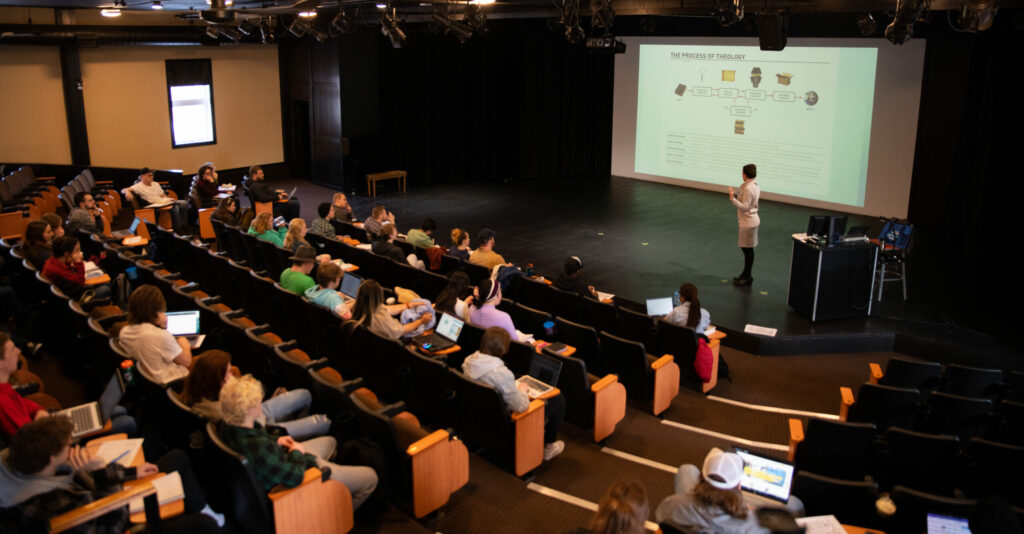
Invest in the next generation of missional professionals. Each year Prairie College distributes over $500,000 in scholarships and bursaries to students. We are grateful for each gift that reduces the burden of students’ tuition and allows students to fulfill their God-given professions.
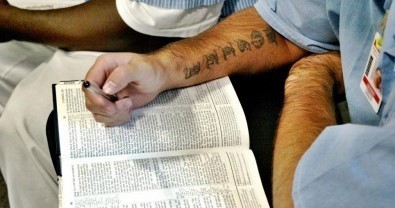
Encourage inmates in five institutions across Alberta to discover or reconnect with Jesus Christ. This fund assists the students studying the Certificate in Bible program with scholarships, resources for classes, and instruction.

Prairie College is educating students to pursue a Biblical foundation for life and career. Your contribution to this fund assists in minimizing the College’s general operating expenses.
To allocate your gift, please select one of the donation buttons below.